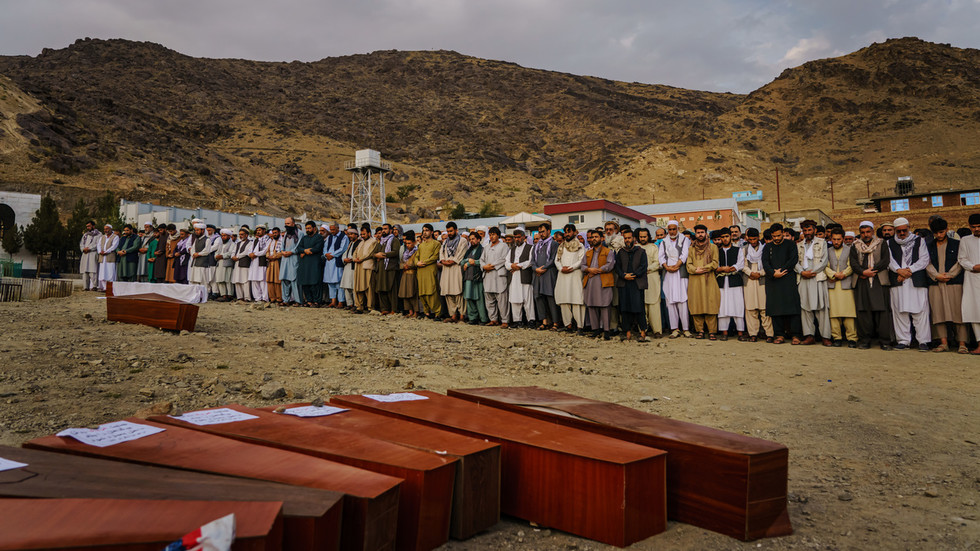
The US military has issued a new guide to ‘Civilian Harm Mitigation’
FILE PHOTO: People attend a mass funeral for the 10 civilians killed by a US drone strike in Kabul, Afghanistan, August 30, 2021 © Marcus Yam / Los Angeles Times via Getty
The US Department of Defense on Thursday published an instruction on “Civilian Harm Mitigation and Response,” outlining new procedures to prevent noncombatants from getting hit and how to deal with it when it happens.
The 52-page document was sent out to all branches of the military, the Joint Chiefs of Staff and the combatant commands and lays out the new policies for “CHRM.”
“The release of the DOD instruction continues the process of improving the department’s approach to mitigating and responding to civilian harm,” Pentagon spokesman Major General Pat Ryder told reporters at a press briefing on Thursday.
The new policy is the result of two reviews of civilian casualty incidents in Syria, the Military Times reported. Both reviews were launched in 2021. One dealt with the 2019 bombing of Baghouz that killed “dozens” of noncombatants, while the other examined the fighting to reclaim Raqqa from Islamic State (IS, also known as ISIS) in 2017.
Both reviews found that the Pentagon “did not have codified policies on preventing civilian harm or handling its aftermath,” according to the outlet.
The newly published set of instructions calls for the military to identify what it needs to target and execute strikes more precisely, and directs the Defense Department to engage in “periodic dialogue and consultations with representatives and experts from civil society organizations, non-governmental organizations, and international organizations” regarding CHMR policy.
The new policy requires US military components to “conduct, document, and archive timely and thorough assessments of civilian harm” that may have resulted from operations, and identify measures to “mitigate the likelihood of future incidents.”
When civilian casualties happen, the US military is instructed to acknowledge it and “respond to individuals and communities affected,” including expressing condolences. The military also needs to “identify, document, and disseminate lessons learned, recommendations, and effective practices related to CHMR” and incorporate them into doctrine and procedures.
The Pentagon has also launched a new CHMR website and is working to establish a “center of excellence,” headed by one of the researchers behind the Raqqa report, Michael McNerney.
The US has rarely acknowledged causing civilian casualties, and on the occasions that it has, it cleared its military of any wrongdoing. The most notable recent incident involved a drone strike in August 2021 during the scramble to evacuate from Afghanistan. Following a suicide bombing outside the Kabul airport, the Pentagon claimed to have killed a terrorist mastermind and kept insisting the strike had been “righteous” amid reports of civilian deaths. The official line only changed a month later, after a media investigation showed the attack had targeted a charity worker and killed ten civilians – seven of them children. In December 2021, the US military announced that no one involved in the strike would be punished.



